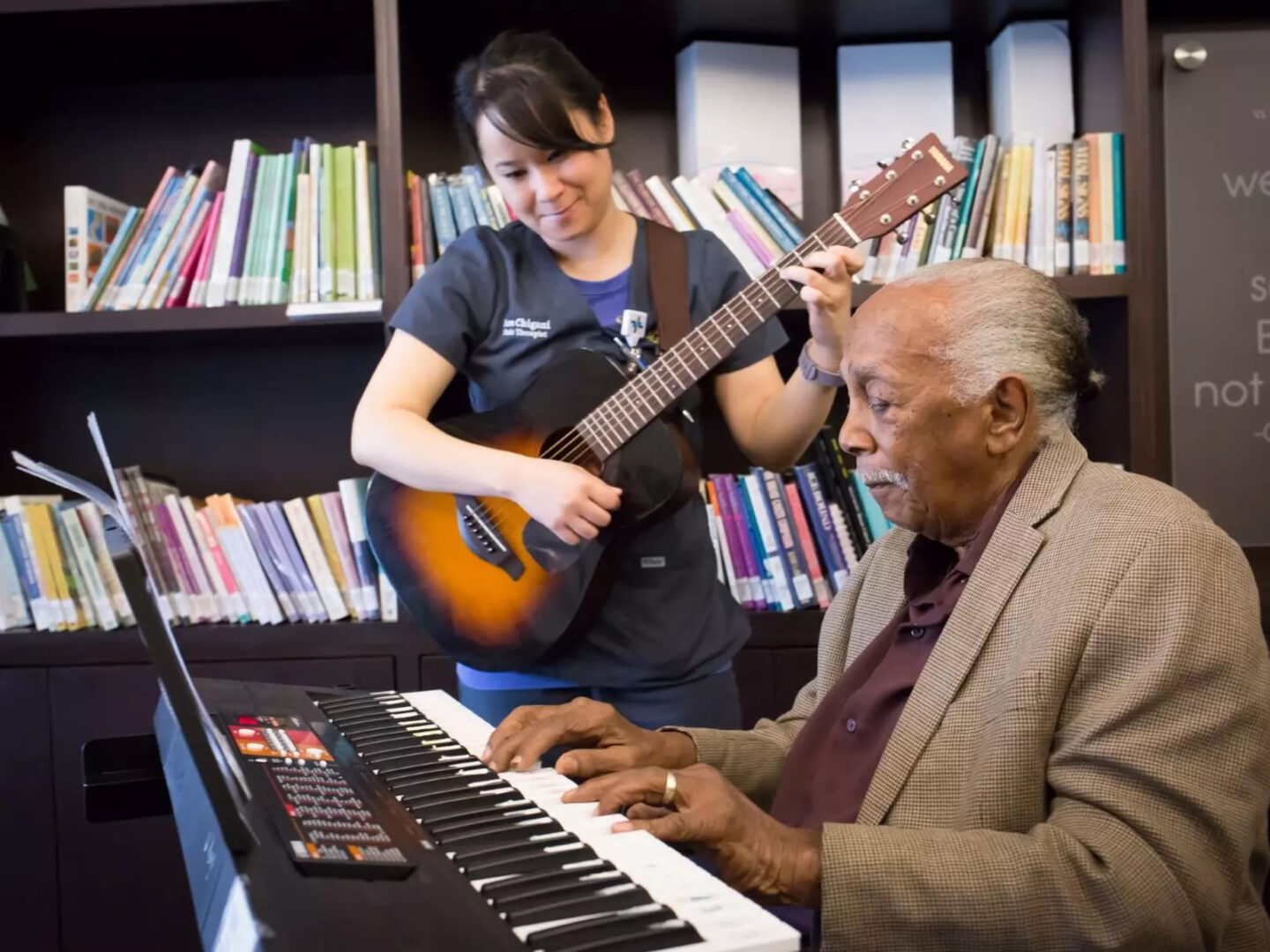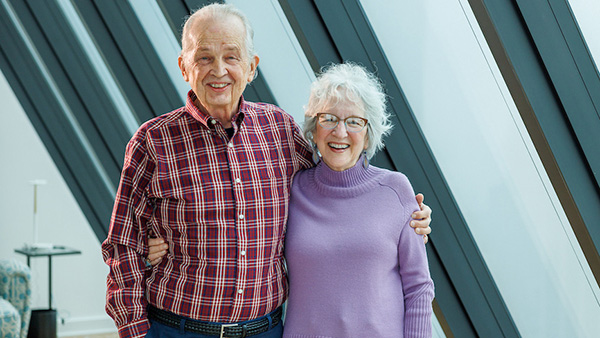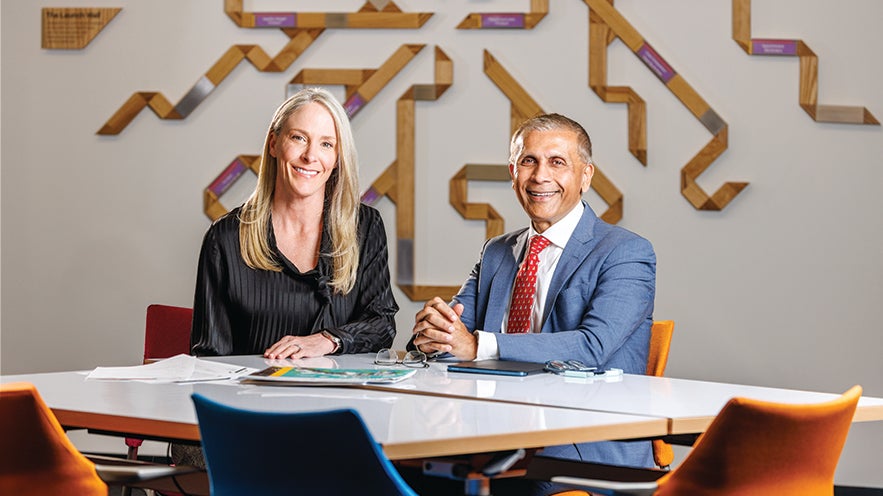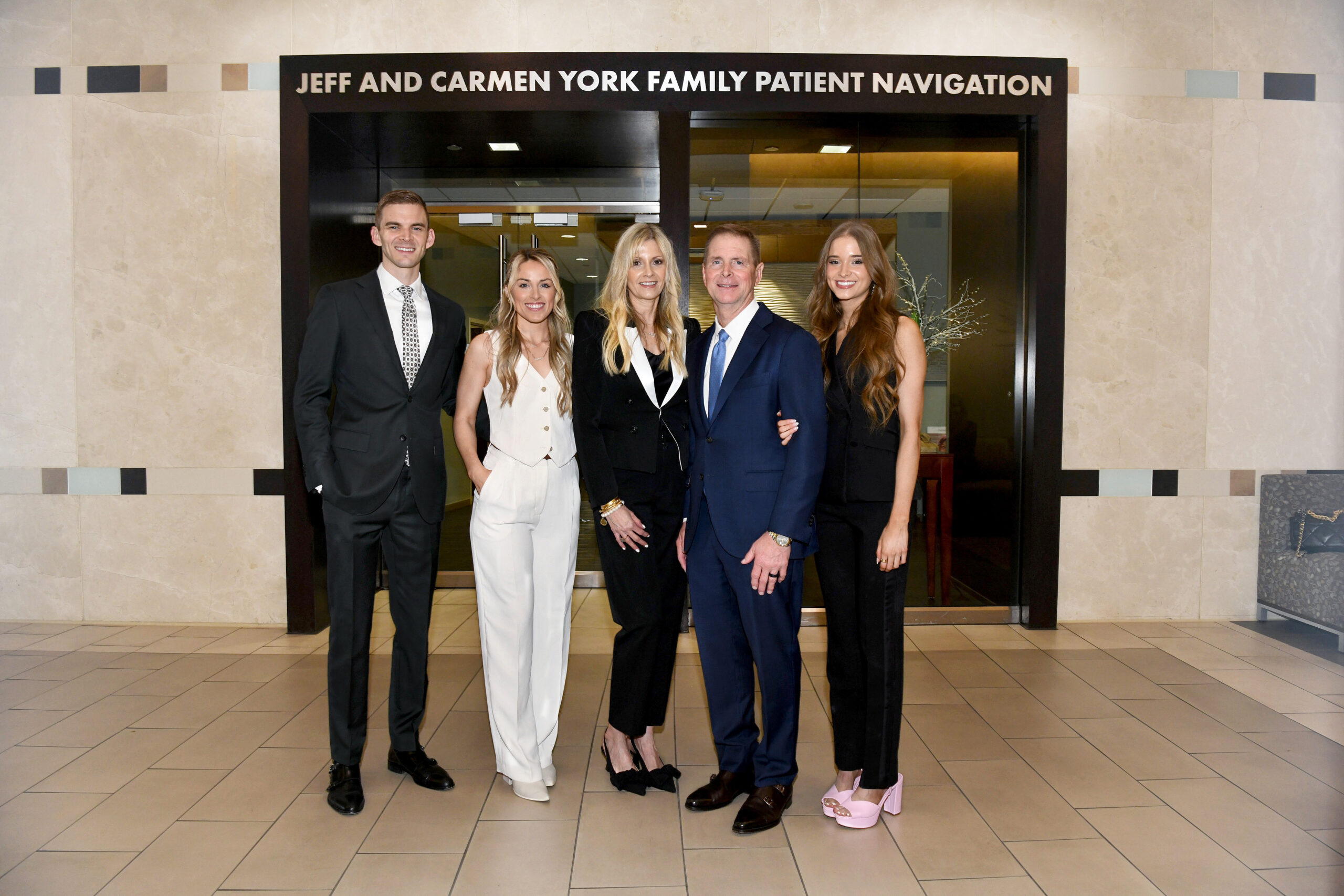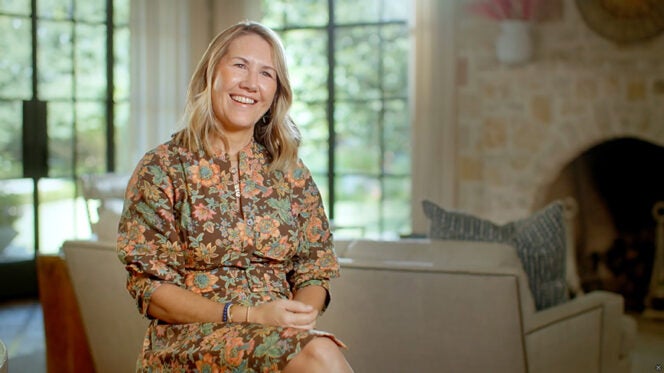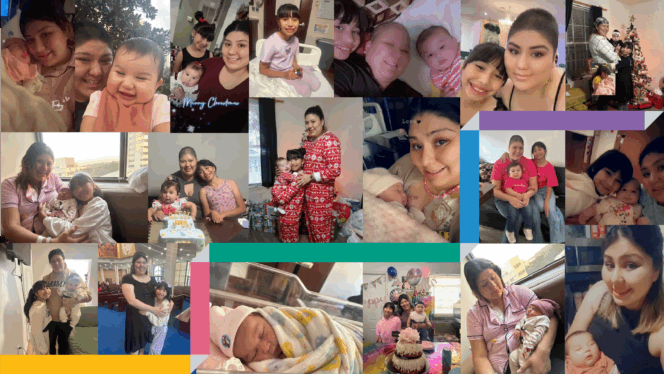“It’s catching lightning in a bottle.”
Baylor Scott & White unveils Texas Cancer Interception Institute, funded by philanthropy and fueled by determination.
As Jeff York took the podium to address the room of clinical innovators, researchers, supporters and patients ready to celebrate an important charge in the battle against cancer—the unveiling of the Texas Cancer Interception Institute on March 4—he reflected on the gravity of the moment and how far he had come to share it with everyone there.
Nine years ago, before he began his journey with Baylor Scott & White Health, Jeff was diagnosed with gastroesophageal junction cancer, a cancer of the connection between the esophagus and the stomach. He completed a complex surgery, multiple rounds of chemotherapy and radiation—and then learned his cancer had returned, fiercer than ever. Sitting in an exam room in a hospital far from his home in Dallas, with his wife, Carmen, by his side, Jeff refused to accept the only thing his oncologist at the time offered him: defeat.
“She said less than 10 percent of people who have a recurrence of the kind of cancer I have live another 24 months,” Jeff said. “This doctor told me to go home and get my affairs in order. I told her, ‘You’re giving me a death sentence.’”
Unwilling to accept complacency, Jeff left that hospital and instead found a team at Baylor Scott & White who understood his mission to beat cancer.
Working with David McCollum, MD, an oncologist on the medical staff of Baylor Scott & White, Jeff receives weekly treatment of a drug shown to keep his specific type of tumor at bay. Fueled by his own experiences, Jeff dedicates his time to provide encouragement and support to others undergoing cancer treatments each week.
As a volunteer in the infusion center, he looks for those patients undergoing chemotherapy treatments by themselves and intentionally connects to lift them up and let them know they’re not alone. Additionally, Jeff commits his time and advocacy as a board member of both the Baylor Scott & White Sammons Cancer Center and Baylor Scott & White Dallas Foundation.
Jeff acknowledges that although cancer will forever be part of his story, he is incredibly grateful for the care he has received at Baylor Scott & White and is committed to paying it forward for those facing a diagnosis, now and in the future.
Launching Texas Cancer Interception Institute
Building on this passion and gratitude, the Jeff and Carmen York Family have generously committed $7 million to help fund a new era in cancer detection, the Texas Cancer Interception Institute (TCII).
“Early detection is the key to defeating cancer,” said Ronan Kelly, MD, chief of oncology at Baylor Scott & White in North Texas and director of Baylor Scott & White Sammons Cancer Center.
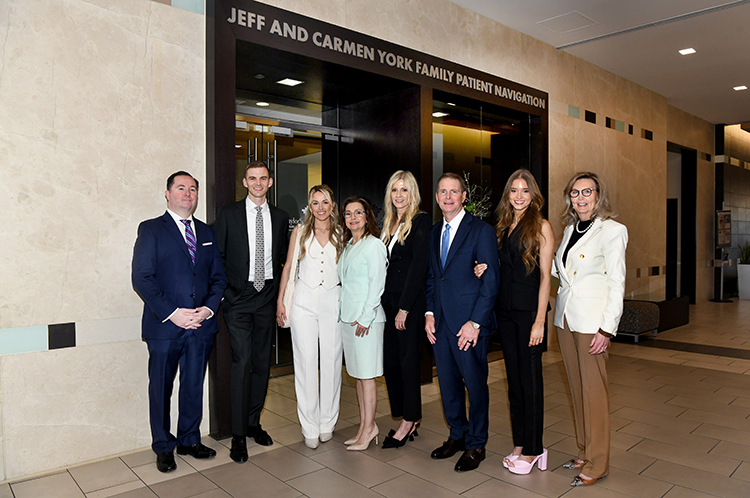
Carmen and Jeff York with (at left) Ronan Kelly, MD, son Evan and wife Tiffani, nurse navigator Stacey Webb, (at right) daughter Kathryn and JaNeene Jones
“The sobering reality is that 70 percent of cancer-related deaths are due to cancers without a recommended screening test,” he added.
National efforts aim to reduce cancer mortality by 50% in 25 years—a significant goal that requires moving from reactive to proactive care. Baylor Scott & White is uniquely positioned to contribute toward these ambitious goals. With 8.4 million patient encounters each year, more than 150 primary care facilities and expertise in cancer care, Baylor Scott & White can become a leader in early detection and diagnosis.
When cancer is identified at a less advanced stage, patients can get treatment sooner, and that will save lives. If done successfully, we believe this will change the model of cancer care nationally. – Dr. Ronan Kelly
Uniting Innovation
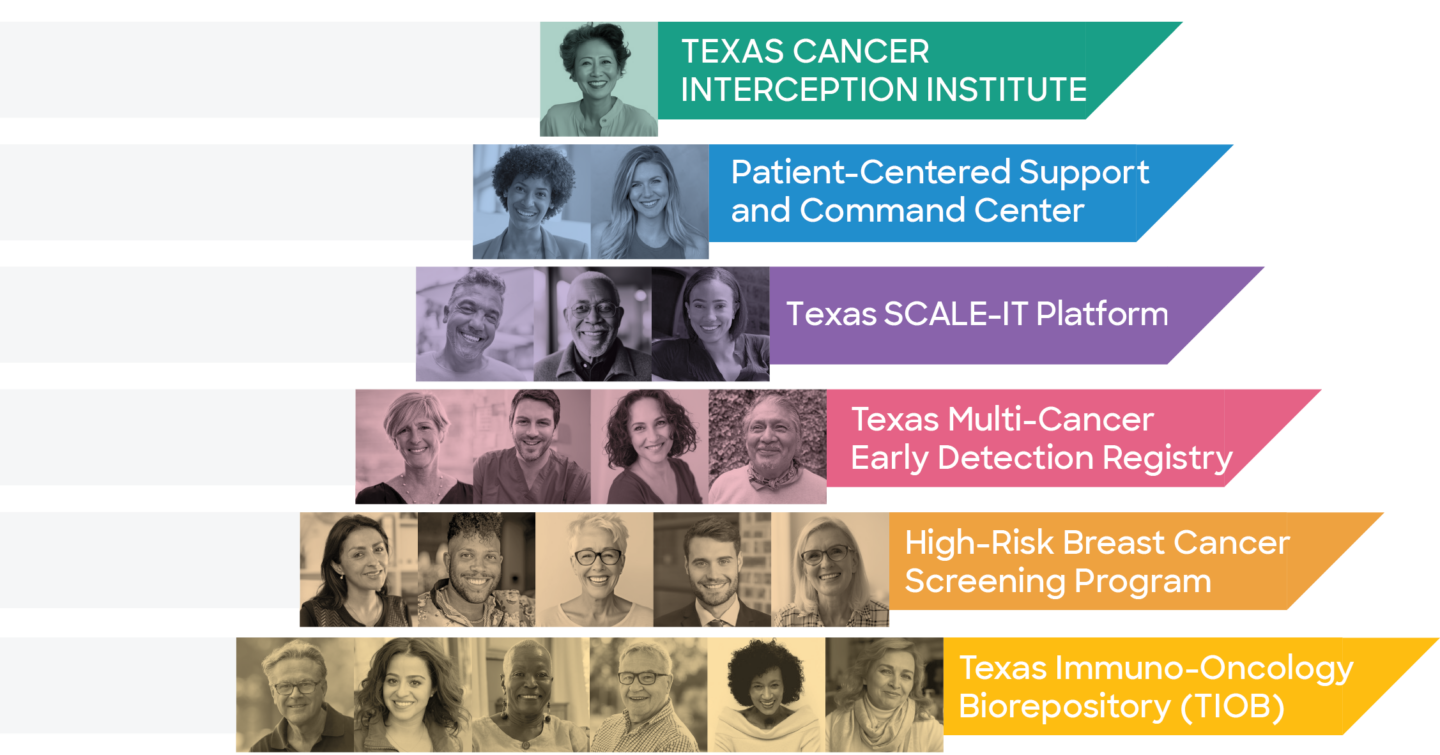
The goal of TCII is to change the conversation for the tens of thousands of people each year who will hear the dreaded words: “You have cancer.” Approaching the fight against cancer from multiple angles, TCII unites several exciting developments in early detection under one umbrella to accelerate impact in the lives of Texans, including:
Pre-cancer diagnosis—how we are diagnosing earlier
- Multi-Cancer Early Detection (MCED): Through a partnership with Exact Sciences, 50,000 MCED blood tests are being deployed across Baylor Scott & White primary care offices. These simple blood tests can detect cancerous tumor DNA before it is large enough to appear on routine screenings.
- High-Risk Breast Screening Program: This initiative helps patients who are identified as high risk to begin risk-reduction and surveillance strategies to enable the earliest diagnosis of breast cancer.
- AI Technology: From advanced imaging interpretation to predictive analytics, AI tools will enable us to identify patients who are at high risk for cancer and allow for earlier and more effective interventions.
Post cancer diagnosis—using precision medicine to treat patients and develop population health models
- Texas Immuno-oncology Biorepository: This hub collects biospecimens from a diverse population across Texas to advance studies on cancer recurrence and improve immunotherapies. Using data collected from cancer patients across the state, researchers are finding microscopic clues that signal cancer growth.
- Genomics: Sequencing a person’s DNA allows care teams to generate a personalized readout of what genetic alterations are happening in a patient and why. With that knowledge, that person’s cancer can be more precisely targeted with the right treatments.
- TRIM Trial: This is a first-of-its-kind clinical trial to investigate the use of a new weight loss drug, Zepbound®, to reduce the risk of breast cancer recurrence in patients with obesity.
Patient Support throughout a cancer journey
- Jeff & Carmen York Family Patient Navigation Program: Dedicated navigators guide patients from diagnosis to survivorship.
- Psychological & Genetic Counseling: This provides mental health support and genetic risk assessment.
“We are now entering a whole new era on the war on cancer armed with new ways to detect microscopic signs of the disease rather than waiting for a patient to present with symptoms,” Dr. Kelly said. “We are incredibly grateful to have partners like the Jeff and Carmen York Family, who not only believe in this mission, but are willing to significantly invest in this new model of cancer care.”
Caring Guidance
Through the TCII, patients could potentially learn that they are positive for cancer at earlier stages. There is now a responsibility to help them not only locate the cancer but also provide them with the equivalent of a rapid response team. This commitment led to the creation of the TCII Command Center and expanded patient navigation program—both key elements of support in the York Family gift.
Located at the Baylor Scott & White Charles A. Sammons Cancer Center, the TCII Command Center will serve as the front door in helping patients, primary care physicians and families determine next steps in the cancer journey. It’s this type of support that made the greatest impact for Jeff and Carmen as they navigated Jeff’s own treatment.
“Research has shown that patient outcomes are much improved when they have their own advocate or navigator through their care. It improves patient communication, and improves patient adherence to treatment and appointments,” said Stacey Webb, manager of the Jeff & Carmen York Family Patient Navigation Program, which was recently renamed in gratitude for the York Family’s generosity.
Many people battling cancer have never experienced a health crisis before and are lost on what to do, Stacey explained.
“Navigators do a great job of meeting the patient where they are and educating them about their diagnosis and next steps. We remove barriers to care and provide interventions and resources to patients they may or may not know are available—either care in our location or in the community in which they live,” Stacey said.
Creating a Legacy
Navigating people through the journey of cancer diagnosis, treatment and recovery is central to the TCII’s services and the Yorks’ mission in supporting it, Carmen explained. She emphasized that while technology and treatment are essential, it’s the people behind them who truly give the mission its heart.
It’s something her children, Evan and Kathryn, will continue, Carmen said, and it’s a mission she will also pass down to her grandchild, one-year-old Summer Love, the daughter of Evan and his wife, Tiffani.
“We wouldn’t be doing this if it weren’t for everyone at Baylor Scott & White,” Carmen said. “What’s in our heart is giving back to Baylor because of its people. When patients come in, it’s like they get a warm hug. When you feel that, you don’t feel like you’re sick and in a hospital. You feel that these people are going to wrap their arms around me.”
Knowing that so many of his friends, family, neighbors and colleagues might one day be faced with the same news he had to hear, Jeff decided to dedicate his fight to others, and to making a difference that will be felt for decades to come. “It’s all starting at Baylor Scott & White right here in Texas,” Jeff said. “It’s catching lightning in a bottle, which is remarkable!”
For more information, contact

